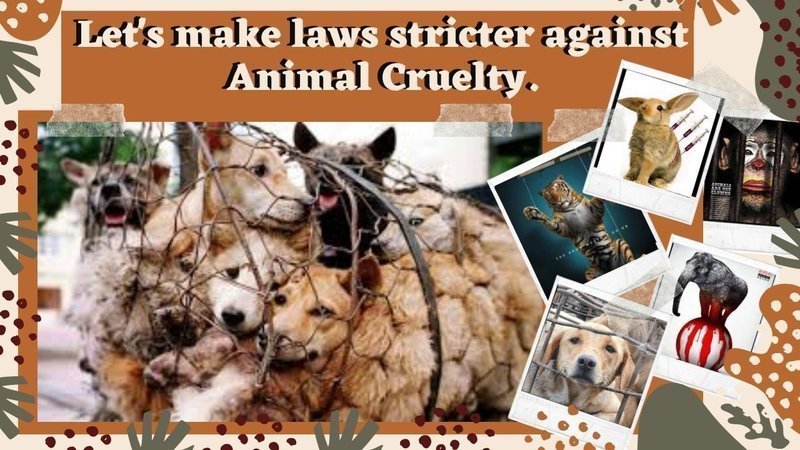Animal cruelty remains a pressing concern in society, fueled by various factors such as societal indifference, ignorance, and the perpetuation of harmful traditions. This issue not only reflects a moral failing but also exposes systemic flaws within legal frameworks designed to protect vulnerable creatures. Understanding how to pursue legal action against those who commit acts of cruelty is essential for fostering a culture of accountability and compassion towards animals.
When contemplating legal action for animal cruelty, one must first become acquainted with the legal definitions and statutes relevant to this area. Animal cruelty generally encompasses acts of abuse, neglect, or the intentional infliction of pain and suffering upon animals. The parameters of these laws may vary significantly from one jurisdiction to another, as some regions may have more robust protections than others. Therefore, comprehensive research into local animal cruelty laws is pivotal. In certain states, laws are categorized into misdemeanors and felonies, delineating the severity of the act and the potential consequences.
The first step in the legal journey is to gather concrete evidence. Documenting all instances of cruelty is imperative. This evidence can take various forms, including photographs, video recordings, eyewitness accounts, and veterinarian reports. Each piece of documentation serves to construct a compelling narrative that substantiates the claim. Moreover, collecting testimony from professionals, such as veterinarians or animal welfare officials, can lend significant weight to the case, underscoring the mishandling or abuse the animal has endured.
Once evidence is meticulously compiled, it’s beneficial to reach out to local animal control authorities or humane societies. These organizations often have the authority and resources to investigate claims of animal cruelty. They can provide guidance on the best course of action and may even intervene on your behalf if the situation warrants it. In some cases, they can file charges against the perpetrator, simplifying the process for the victim.
If local authorities fail to act, consider seeking legal representation from an attorney who specializes in animal law or civil rights. Knowledgeable legal counsel provides several advantages. It ensures that your rights are protected throughout the process, and they can help navigate the often-complex legal landscape. An attorney can assist in filing a lawsuit against the individual, if necessary, as well as explore potential routes for redress, such as damages for veterinary expenses, pain and suffering, and other associated costs.
Understanding the type of lawsuit to file can influence the trajectory of the case. There are generally two paths available: a criminal case, where the State prosecutes the offender, or a civil case, where the victim seeks damages. Criminal prosecutions aim to punish the wrongdoer through fines or imprisonment, whereas civil lawsuits are predominantly concerned with compensation for the injured party. Knowing which type of case to pursue will depend on the specifics of the situation, including the extent of harm inflicted on the animal and the local legal context.
Aside from legal action, fostering a community that denounces animal cruelty is vital. Engaging the public through awareness campaigns or educational initiatives can illuminate the depths of cruelty that animals endure. This communal approach not only strengthens the resolve to take immediate action but also plays a significant role in preventative measures. Acquainting people with the signs of animal abuse and neglect equips them with the knowledge necessary to intervene when they witness such incidents.
Engagement on social platforms can amplify efforts. Sharing stories, reporting injustices, and mobilizing supporters to call for recognition of animal rights can exert pressure on lawmakers and enforcement agencies. In many instances, collective voices prompt legislative changes, resulting in stiffer penalties for offenders or the establishment of more comprehensive animal protection laws.
Unfortunately, some individuals may question the relevance of animal cruelty legislation, viewing such acts as insignificant compared to human issues. This perspective often stems from a deeply ingrained societal hierarchy, which places human needs above those of animals. However, the moral implications of animal welfare extend beyond a mere ethical debate; they intersect with issues of empathy, social responsibility, and humanity itself. By neglecting the plight of voiceless beings, one risks cultivating an environment where cruelty, in all its forms, can flourish unchecked.
Legislators are increasingly called to prioritize animal welfare, limited by outdated views that trivialize the importance of these laws. True progress necessitates a fundamental shift in societal values, advocating for creatures that share this planet. Legal actions against perpetrators of animal cruelty are critical, but they must align with broader efforts to educate, mobilize, and advocate for reform.
In conclusion, knowing your legal rights in cases of animal cruelty is not solely an individual endeavor but a societal imperative. Armed with knowledge, valid evidence, and steadfast resolve, one can initiate a powerful movement toward justice for animals. As communities gather around this cause, the legal machinations of pursuing justice can transform a deeply ingrained culture of cruelty into one of protection and compassion. The enduring fight against animal cruelty is a testament to our collective ethical responsibilities, urging us forward in pursuit of a more humane world.








